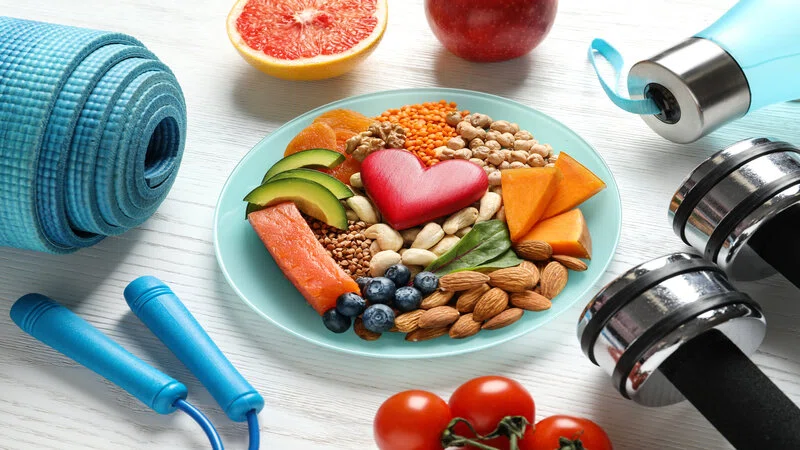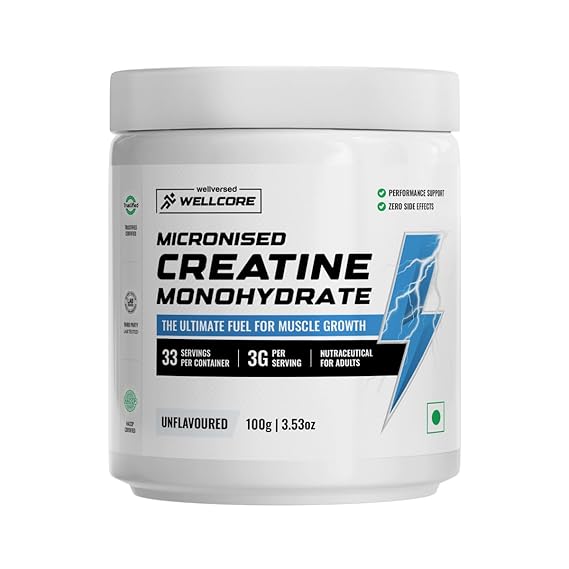Nutrition plays an essential role in fitness, well-being, and sports activities overall performance. It is the gas that powers every motion, the constructing block for muscle restore, and the name of the game behind foremost recovery. Whether you’re a newbie fitness enthusiast, a professional athlete, or a person aiming for physical well-being, the right nutrition plan can considerably enhance your performance and general well-being.
In this newsletter, we will explore the importance of vitamins for health and sports, the benefits they bring to overall bodily performance, and the way a well-balanced diet can remodel your fitness journey.
The Role of Nutrition for Fitness and Sports
1. Energy Supply
Nutrition for fitness and sports activities starts with strength. Your body wishes energy derived from macronutrients—carbohydrates, proteins, and fats—to carry out any physical hobby. Carbohydrates, particularly, are the number one supply of electricity for high-intensity workout routines. They provide the glucose your muscle tissues require to sustain extended attempts. Fats, on the other hand, act as a secondary electricity supply, specifically in the course of persistence sports.
2. Muscle Growth and Repair
Protein is essential for muscle boom and recuperation. During intense physical activities, muscle fibers experience small tears. Consuming ok protein facilitates restoring these tears and promotes muscle increase. Lean protein resources, along with fowl, fish, tofu, eggs, and legumes, are remarkable options for athletes.
3. Hydration and Electrolyte Balance
Staying hydrated is a cornerstone of nutrients for physical health and sports. Water regulates frame temperature, aids digestion, and guarantees that vitamins are transported correctly. Electrolytes, along with sodium, potassium, and magnesium, are also important for retaining fluid stability and preventing cramps all through workouts.
4. Enhancing Recovery
Post-exercising vitamins play a pivotal position in recuperation. Consuming a balanced meal or snack inside 30 minutes of exercising replenishes glycogen stores and gives the amino acids important for muscle restoration. This practice reduces soreness and prepares the body for the subsequent schooling session.
5. Supporting Overall Wellness
Beyond bodily overall performance, nutrition for fitness and health supports immune function, improves intellectual clarity, and promotes long-term health. A properly rounded weight loss program rich in vitamins, minerals, and antioxidants complements the frame’s resilience towards infection and oxidative pressure.
Benefits of Proper Nutrition for Physical Fitness and Sports
1. Improved Athletic Performance
Athletes with optimized vitamins can perform higher, run quicker, and raise heavier weights. Properly timed meals and snacks provide the energy required for peak performance. For instance, eating a carbohydrate-wealthy meal earlier than an event ensures that the body has good enough gas to sustain excessive-intensity pastime.
2. Enhanced Endurance
Endurance sports activities like long-distance walking, biking, and swimming demand sustained strength. Nutrition tailor-made for those activities includes a combination of gradual-digesting carbohydrates and wholesome fat to hold energy degrees regular. Adding electrolyte-wealthy drinks prevents dehydration and fatigue.
3. Faster Recovery Times
Intense bodily sports can deplete the body. By incorporating submit-workout vitamins techniques, athletes can accelerate recuperation, lessen muscle discomfort, and return to schooling quicker. An aggregate of protein and carbohydrates is right for replenishing electricity and assisting muscle repair.
4. Weight Management
Nutrition for health and wellness additionally plays a function in reaching and retaining a healthy weight. Balancing calorie intake with physical activity ensures that you meet your fitness desires without compromising performance. High-protein, nutrient-dense foods sell satiety, assisting you in keeping away from overeating.
5. Injury Prevention
Adequate vitamins strengthen bones, muscle mass, and connective tissues, decreasing the danger of accidents. Calcium and vitamin D are important for bone health, even as omega-three fatty acids reduce inflammation and assist joint fitness.
6. Improved Mental Focus
Nutrition affects cognitive performance as nicely. Complex carbohydrates and omega-3-rich ingredients like salmon and walnuts enhance concentration and focus, which might be important at some stage in competitions or lengthy schooling periods.
Practical Nutrition Tips for Fitness and Sports
1. Plan Balanced Meals
Create food that consists of a balance of macronutrients:
- Carbohydrates: Whole grains, legumes, and greens.
- Proteins: Lean meats, eggs, dairy, or plant-based sources.
- Fats: nuts, seeds, avocado, and olive oil.
2. Time Your Nutrition
- Pre-Workout: Eat a mild meal rich in carbohydrates 2-3 hours before the workout.
- During Workout: For long-length activities, devour effortlessly digestible snacks like power gels or bananas.
- Post-Workout: Replenish with a mixture of protein and carbs within half an hour.
3. Stay Hydrated
Drink water all through the day, and don’t forget sports activity liquids all through prolonged activities to replace misplaced electrolytes. The endorsed daily water consumption varies; however, aiming for three to four liters is a good starting point for active individuals.
4. Monitor Micronutrient Intake
Vitamins and minerals like iron, calcium, magnesium, and B vitamins are critical for athletic performance. Incorporate various fruits, vegetables, and fortified ingredients into your weight-reduction plan.
5. Avoid Processed Foods
Limit the intake of processed and sugary ingredients that may lead to energy crashes and hinder overall performance. Opt for complete, nutrient-dense options instead.
6. Customize Your Diet
Individual wishes range based on the kind and intensity of activity, frame composition, and personal dreams. Consult a registered dietitian or sports activities nutritionist to tailor a plan that suits you.
Supplements: A Complement to Nutrition
While a balanced weight-reduction plan must offer maximum vitamins, supplements can help fill gaps. Popular options consist of:
- Protein Powder: Convenient for assembling protein necessities.
- Creatine: Enhances strength and power output.
- BCAAs (Branched-Chain Amino Acids): Supports muscle recuperation.
- Electrolyte Tablets: Replenishes minerals misplaced through sweat.
- Multivitamins: Covers trendy micronutrient desires.
Always consult a healthcare professional earlier than beginning any supplementation.
Conclusion
Nutrition for fitness and sports activities isn’t always just about ingesting more; it’s about ingesting cleverly. A nicely balanced weight loss plan tailored to your bodily hobby can enhance performance, boost up recuperation, and enhance overall well-being. By focusing on the right mixture of macronutrients, staying hydrated, and timing your meals, you may free up your full capacity and obtain your fitness dreams.
Embrace the power of vitamins for bodily fitness and sports activities, and watch as your performance and well-being reach new heights. With consistency and informed picks, you’ll now not only feel better but also perform at your very best.




